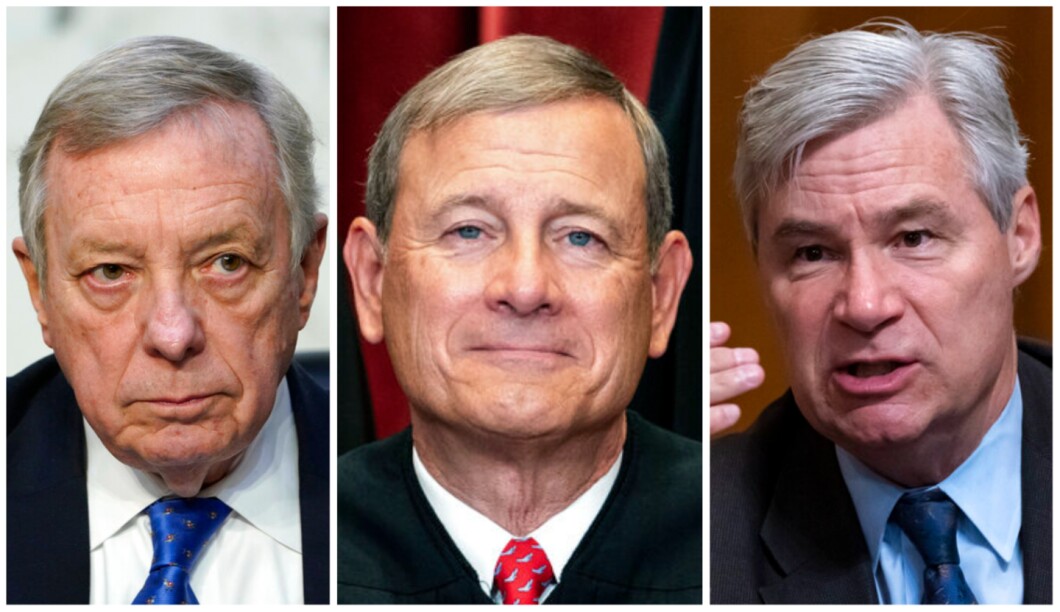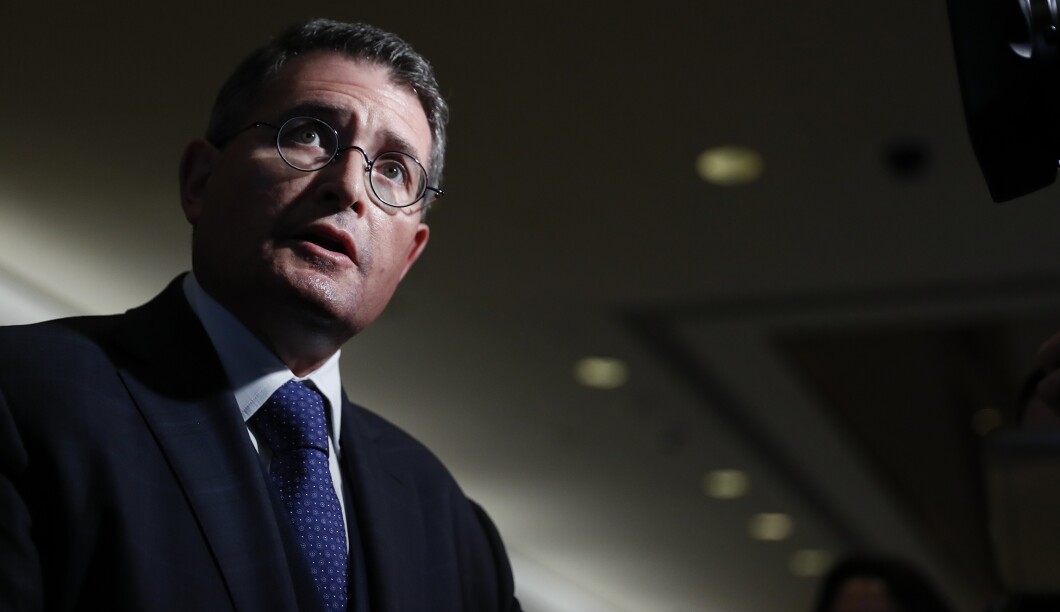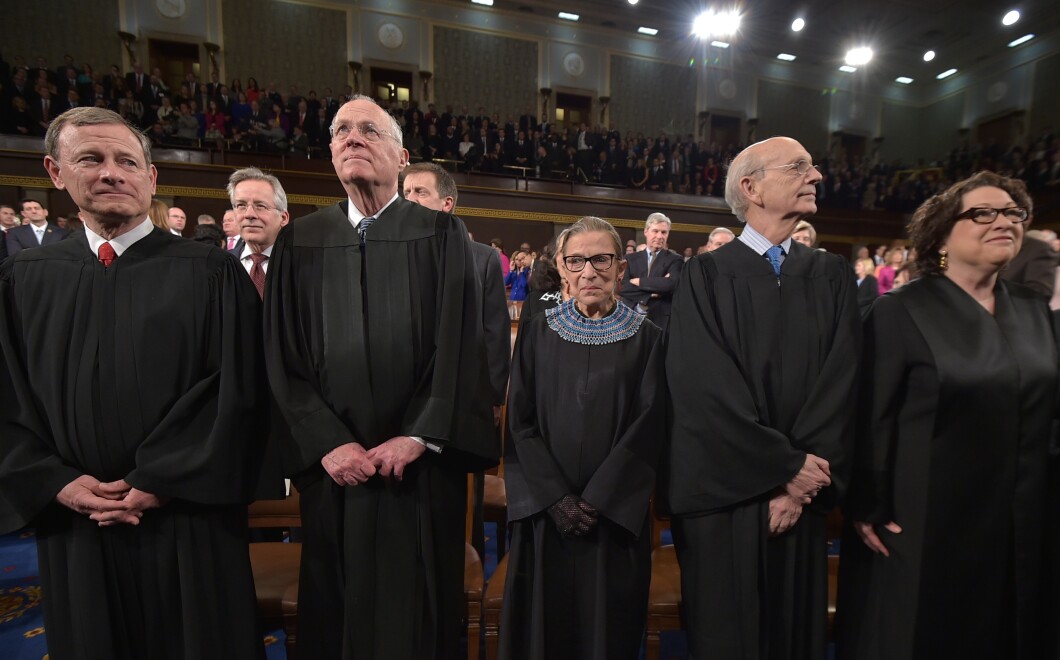
Conservative legal activist Leonard Leo declined to turn over details on any travel, gifts, or payments involving Supreme Court justices, instead decrying the request from the Senate Judiciary Committee Democrats as “political retaliation.”
Leo faced a Tuesday deadline to provide documents to Democratic Sens. Sheldon Whitehouse (RI) and Dick Durbin (IL) about any financial relationships he’s had with justices, but through his legal counsel, Leo argued the committee’s inquiry “exceeds the limits” of the constitution and was designed to vilify him for his “lawful public advocacy.”
FOOD STAMPS: FIRST VIRGINIA DIRECT PAYMENT FOR AUGUST WORTH AVERAGE OF $181 TO GO OUT IN SEVEN DAYS
“Your investigation of Mr. Leo infringes two provisions of the Bill of Rights,” an attorney for Leo wrote in a letter to Whitehouse and Durbin, which was obtained by the Washington Examiner.

Whitehouse and Durbin sent a letter earlier this month to Leo and billionaires Paul Singer and Robin Arkley II requesting information related to a ProPublica report that Justice Samuel Alito “accepted and failed to disclose a luxury Alaskan” fishing trip in 2008 with the pair of billionaires. Leo was allegedly responsible for helping to organize the trip.
The lawmakers sought by Tuesday an itemized list of gifts and payments from Leo or groups he is associated with stemming years ago and related to any high court justices he associates with.
“To date, Chief Justice Roberts has barely acknowledged, much less investigated or sought to fix, the ethics crises swirling around our highest Court. So if the Court won’t investigate or act, Congress must. Answers to these questions will help the Committee’s work to create reliable ethics guardrails at the Court, under Congress’s clearly established oversight and legislative authority,” Whitehouse and Durbin said in a joint statement on July 12.

An attorney for Leo, who is co-chairman of the Federalist Society, likened the request to “political retaliation against a private citizen in violation of the First Amendment.”
“For similar reasons, your inquiry cannot be reconciled with the Equal Protection component of the Due Process clause of the Fifth Amendment. And regardless of its other constitutional infirmities, it appears that your investigation lacks a valid legislative purpose, because the legislation the Committee is considering would be unconstitutional if enacted,” lawyer David B. Rivkin, Jr. wrote in the Tuesday letter.
The letter goes on to point out a range of similar examples by Democratic-appointed Supreme Court justices accepting offers to attend lavish trips and failing to recuse themselves from cases to which they had connections and accepting funds from undisclosed donors.

One example cited the late Justice Ruth Bader Ginsburg‘s acceptance of a $1 million award from a billionaire’s foundation in 2019, to which she gave that money to undisclosed charities. To this day, the foundation will not reveal the names of the foundations that received the donations.
Another example explained that retired Justice Stephen Breyer accepted more than 200 trips “paid for by private individuals,” such as a 2013 trip to Nantucket that was financed by a billionaire.
Rivkin wrote that it’s “hard to conclude that the disparate treatment to which Mr. Leo is being subjected is the result of anything other than sheer vindictiveness motivated by politics.”
The Federalist Society has been subject to liberal criticism for its involvement in advising former President Donald Trump‘s nominations of Justices Neil Gorsuch, Brett Kavanaugh, and Amy Coney Barrett.
ProPublica’s reporting on the justices began earlier this year with a revelation that Justice Clarence Thomas failed to disclose multiple trips financed by wealthy GOP megadonor Harlan Crow.
In April, Thomas said that he had “always sought” to comply with the disclosure guidelines, noting that the governing body for federal courts had recently adopted stricter rules for denoting gifts such as travel and lodging offerings.
Alito has also defended himself against reporting about his conduct, and Leo released a statement earlier this month dismissing the notion that the fishing trip was meant to be kept under lock and key.
“Justice Alito talked about this trip in front of dozens of journalists and over 2,000 people after being introduced by Paul Singer at a Federalist Society dinner 14 years ago,” Leo said. “Nobody questioned Justice Alito’s impartiality then or thereafter.”
CLICK HERE TO READ MORE FROM THE WASHINGTON EXAMINER
The allegations of Supreme Court impropriety spawned new litigation from Whitehouse that passed out of the Judiciary Committee last week. The bill stands little chance of success of becoming law due to the Republican majority in the House but seeks to create a binding code of ethics. Republicans argue the justices should create their own terms if they decide that’s an appropriate path.
The Washington Examiner contacted Durbin and Whitehouse for a response.





